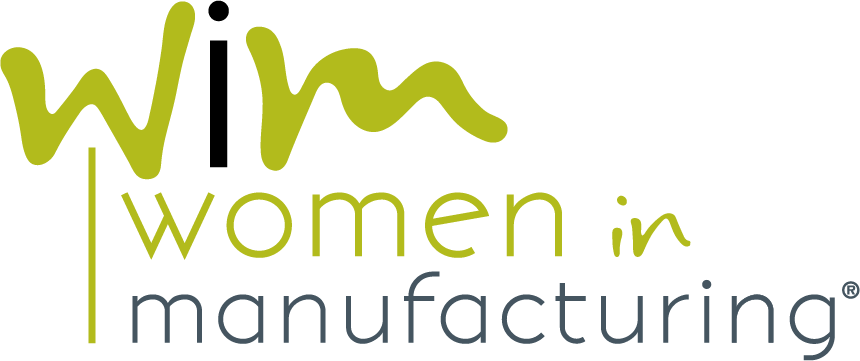Empowering Women and Small Businesses in Manufacturing
Empowering Women and Small Businesses in Manufacturing
As Women in Manufacturing Association (WiM) approaches our 14th annual SUMMIT, it’s essential to reflect on the journey of the organization and its early supporters. From its inception, WiM has been a champion for women in the manufacturing industry, particularly those at the helm of small and midsize privately held companies. These women were instrumental in laying the foundation for WiM, even when their resources were smaller and less robust than their larger, publicly traded counterparts.
“Small businesses are the backbone of the U.S. manufacturing landscape,” says Allison Grealis, WiM founder and president. “And as we know from WIM’s early start, many of them are privately held — many of them are run by generations of families that are passing the torch to new generations.”
At this year’s SUMMIT, held October 6-9 in Boston, we are offering a customized track called the Owner’s Track, a conference experience for business owners and executives at privately held companies. “Small businesses represent a vast network where we know there could be women who are eager for support and resources as they grow their companies and continue to develop professionally,” says Grealis. The Owner’s Track will include a series of enriching sessions and exclusive networking opportunities designed to help grow and secure the future of small businesses.
Small Businesses as the Backbone of Manufacturing
Small manufacturers make up 99% of all U.S. manufacturing enterprises, and they are critical to the country’s economic stability. These businesses employ over 5 million people and generate more than $1 trillion in gross revenue. In towns across America, small manufacturers are often the primary employers, contributing significantly to their communities both economically and through charitable support.
“In small towns and communities, manufacturers are often the employers of choice,” says Grealis. “They also have strong ties to local educational institutions and are integral in offering training and career opportunities to individuals at all stages of their education.”
This deep connection between small businesses and their communities is something that WiM has always recognized and sought to nurture. As Grealis reflects on WiM’s early years, she points out that it was privately held companies and many women-owned manufacturing businesses that first stepped up to support the organization. “These privately held companies were some of the first to serve on our advisory board, the first to sponsor SUMMIT, and they populated many of our early panels and keynotes. Unlike their counterparts in publicly traded companies, we have found that women in privately held businesses often have increased needs for a network and resources. For them, it was and is critical to create a network that could help them find others like themselves to share resources, but most importantly, to offer support,” says Grealis.
The Growing Role of Women in Manufacturing Leadership
WiM’s mission has always been to support women in manufacturing, and over the years, the organization has seen a marked increase in women leading companies, especially in small and midsize firms. “When we first started, women leading manufacturing companies were not as visible,” says Grealis. “Now, we’re seeing more women in leadership roles, and we want to illuminate their stories so others can see this as a pathway.”
This rise in leadership is in line with broader trends. While women are still underrepresented in STEM fields, there has been progress. For instance, the percentage of women earning degrees in engineering and computer science increased from 17.7% to 22.5% between 2011 and 2020, signaling growth in these male-dominated fields. Furthermore, nearly two-thirds of women working in STEM jobs in 2021 had at least a bachelor’s degree, compared with less than half of men. These advancements show that women are increasingly prepared and qualified to take on leadership roles in industries like manufacturing.
This year’s SUMMIT will reflect that progress. The customized Owner’s Track for small businesses will not only celebrate their role in the industry but also emphasize the leadership of women in these companies. Participants can join tailored educational sessions, specifically designed to address the unique challenges and opportunities small business owners face. Covering a wide range of topics, from reshoring to advanced manufacturing, these sessions will equip attendees with actionable insights to drive their businesses forward.
Looking Ahead: Local Suppliers in the Modern Manufacturing Economy
In addition to their economic influence, small manufacturers have become increasingly important in supply chains. Disruptions in global supply chains, such as those caused by the chip shortage and other crises, have underscored the need for reshoring and relying on local suppliers. Grealis notes, “Small to midsize manufacturers are even more important now than ever. Large manufacturers want to work with suppliers they can rely on to avoid disruptions. Reshoring has increased the importance of local suppliers.”
As the manufacturing industry continues to evolve, the role of small businesses in the U.S. will remain critical. They provide the flexibility, innovation, and resilience that the sector needs to thrive.
Small Businesses: Celebrating Leadership and Legacy
As WiM approaches our upcoming SUMMIT, we look forward to celebrating the progress made and continuing to pave the way for continued growth, innovation, and collaboration. With strong networks and dedicated support, women in small and midsize manufacturing companies are well-positioned to drive the industry forward, ensuring a resilient and dynamic future for American manufacturing.
For more information about SUMMIT’s Owner’s Track, visit our Owners Track page.
For more information about our upcoming SUMMIT conference, visit our SUMMIT event page.
